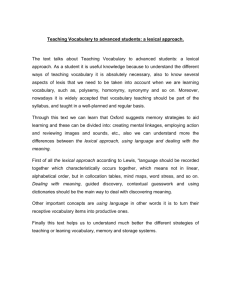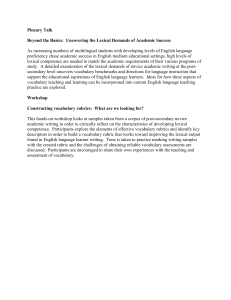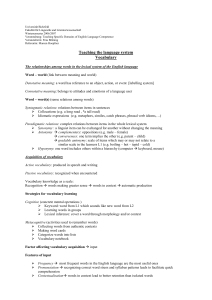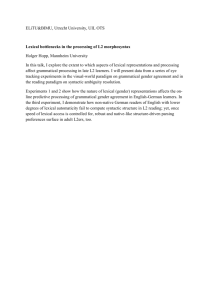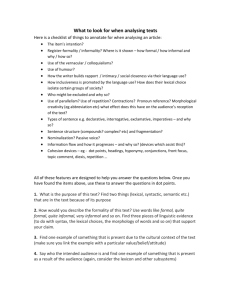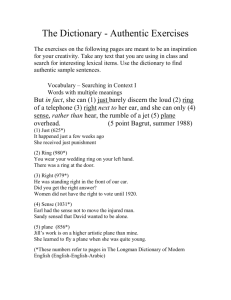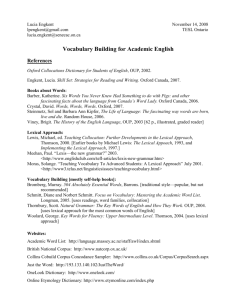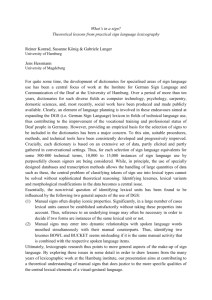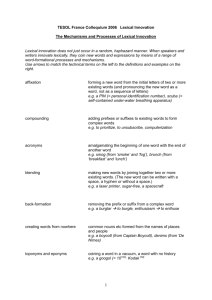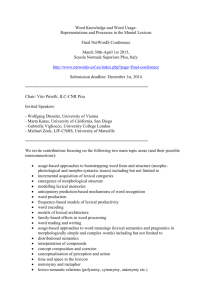Essay Format
advertisement
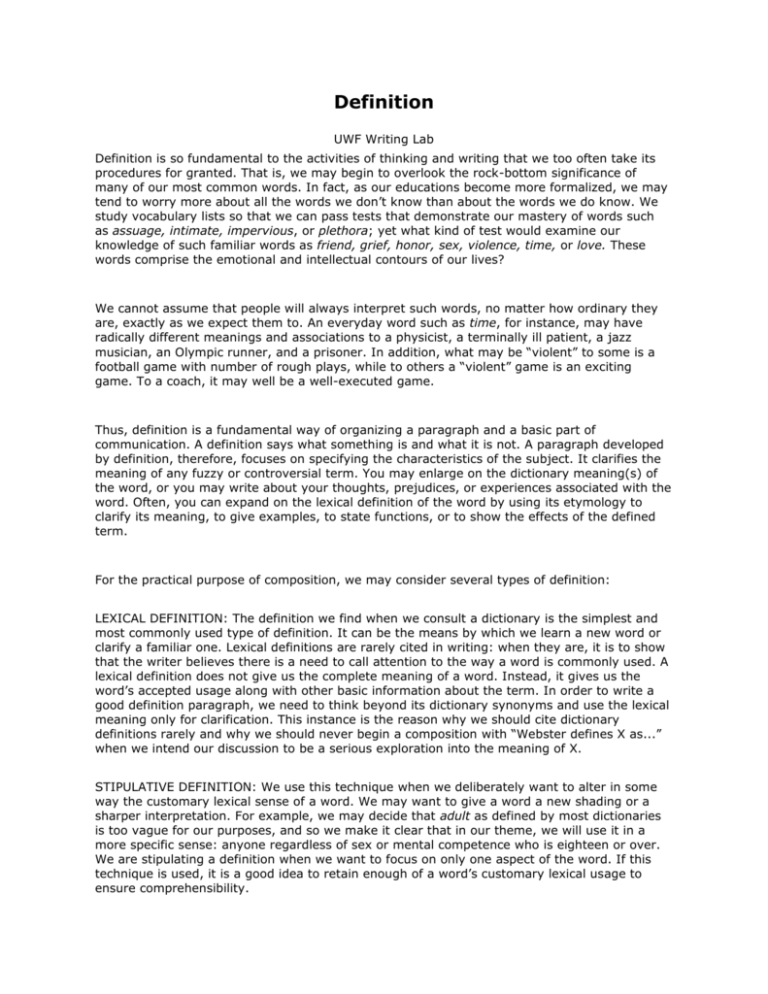
Definition UWF Writing Lab Definition is so fundamental to the activities of thinking and writing that we too often take its procedures for granted. That is, we may begin to overlook the rock-bottom significance of many of our most common words. In fact, as our educations become more formalized, we may tend to worry more about all the words we don’t know than about the words we do know. We study vocabulary lists so that we can pass tests that demonstrate our mastery of words such as assuage, intimate, impervious, or plethora; yet what kind of test would examine our knowledge of such familiar words as friend, grief, honor, sex, violence, time, or love. These words comprise the emotional and intellectual contours of our lives? We cannot assume that people will always interpret such words, no matter how ordinary they are, exactly as we expect them to. An everyday word such as time, for instance, may have radically different meanings and associations to a physicist, a terminally ill patient, a jazz musician, an Olympic runner, and a prisoner. In addition, what may be “violent” to some is a football game with number of rough plays, while to others a “violent” game is an exciting game. To a coach, it may well be a well-executed game. Thus, definition is a fundamental way of organizing a paragraph and a basic part of communication. A definition says what something is and what it is not. A paragraph developed by definition, therefore, focuses on specifying the characteristics of the subject. It clarifies the meaning of any fuzzy or controversial term. You may enlarge on the dictionary meaning(s) of the word, or you may write about your thoughts, prejudices, or experiences associated with the word. Often, you can expand on the lexical definition of the word by using its etymology to clarify its meaning, to give examples, to state functions, or to show the effects of the defined term. For the practical purpose of composition, we may consider several types of definition: LEXICAL DEFINITION: The definition we find when we consult a dictionary is the simplest and most commonly used type of definition. It can be the means by which we learn a new word or clarify a familiar one. Lexical definitions are rarely cited in writing: when they are, it is to show that the writer believes there is a need to call attention to the way a word is commonly used. A lexical definition does not give us the complete meaning of a word. Instead, it gives us the word’s accepted usage along with other basic information about the term. In order to write a good definition paragraph, we need to think beyond its dictionary synonyms and use the lexical meaning only for clarification. This instance is the reason why we should cite dictionary definitions rarely and why we should never begin a composition with “Webster defines X as...” when we intend our discussion to be a serious exploration into the meaning of X. STIPULATIVE DEFINITION: We use this technique when we deliberately want to alter in some way the customary lexical sense of a word. We may want to give a word a new shading or a sharper interpretation. For example, we may decide that adult as defined by most dictionaries is too vague for our purposes, and so we make it clear that in our theme, we will use it in a more specific sense: anyone regardless of sex or mental competence who is eighteen or over. We are stipulating a definition when we want to focus on only one aspect of the word. If this technique is used, it is a good idea to retain enough of a word’s customary lexical usage to ensure comprehensibility.
